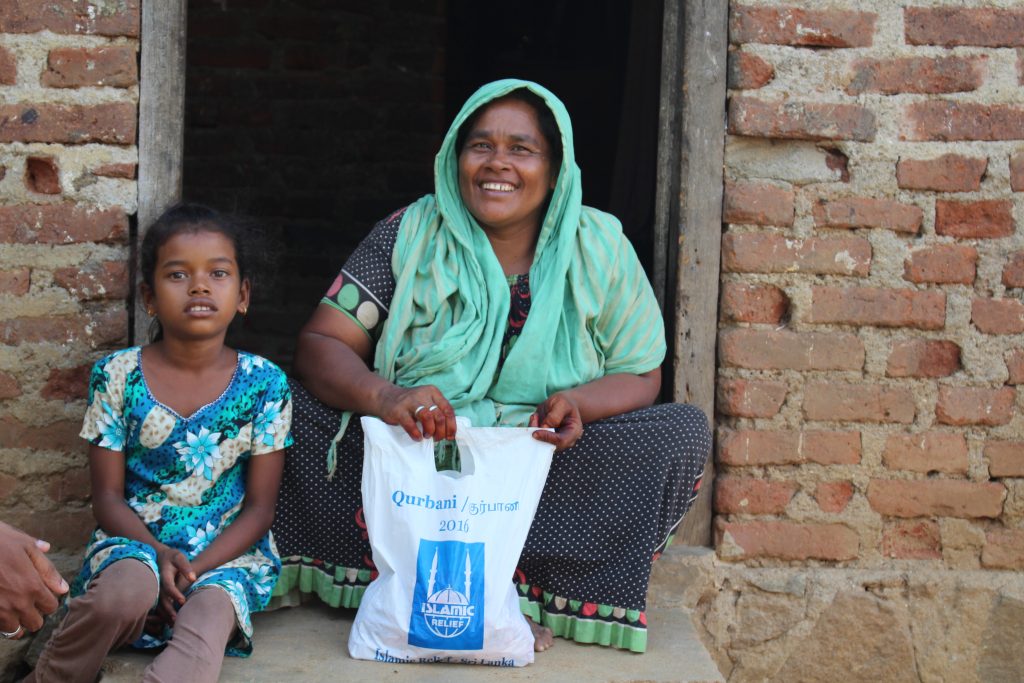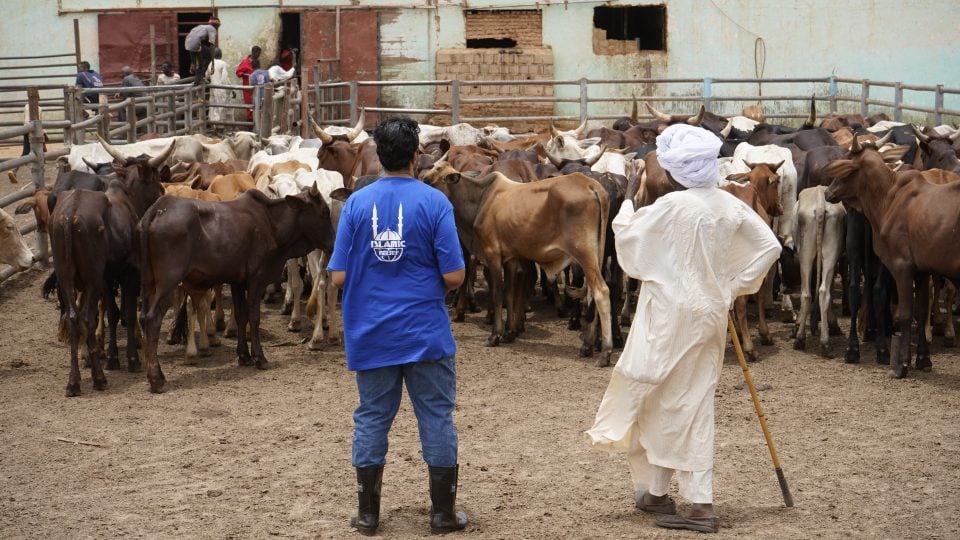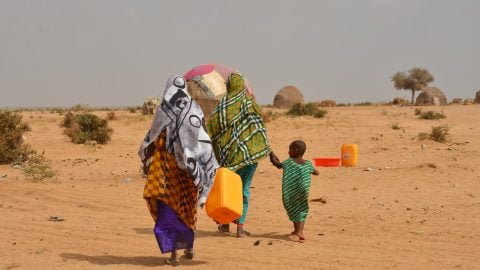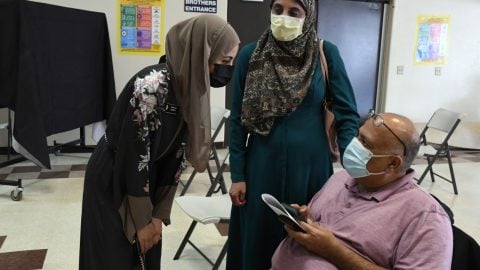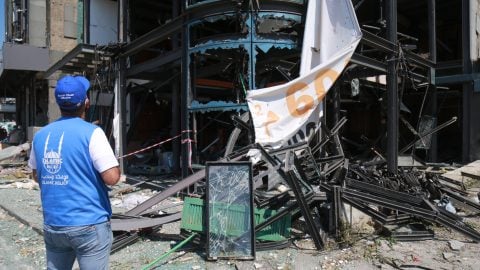Islamic Relief has been running a Qurbani or Udhiya program worldwide for over 30 years. We’ve developed a very efficient, cost-effective and reliable way to help people all over the world fulfill this important religious duty. In the countries we work, the entire Qurbani process from start to finish is done with the highest Islamic, ethical and humanitarian standards.
(You can read more about the religious significance of Qurbani over here!)
Our Qurbani Programs are Driven By Care
There are so many steps to our Qurbani program. From conducting needs assessments, collaborating with local communities to adhering to Core Humanitarian Standards and shariah compliance, we have more than 30 years of experience which makes our Qurbani program one of the best in the world.
To kick things off, our field teams conduct a needs assessment and work with local authorities to identify the most vulnerable communities they have access to.
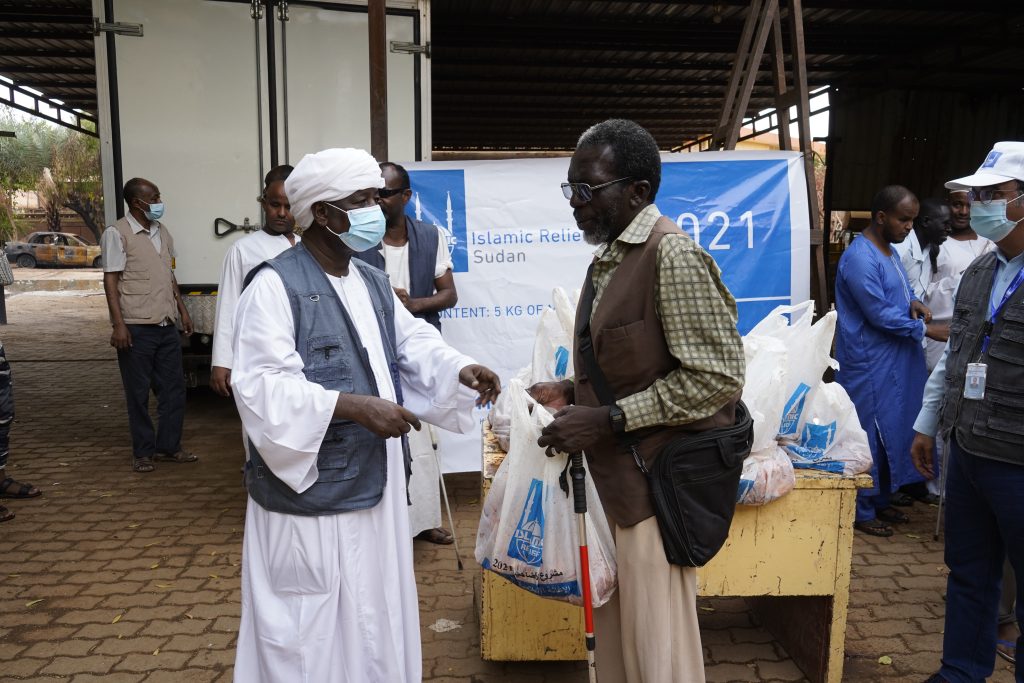
Islamic Relief distributes Qurbani 2021 to 35,980 vulnerable families across Khartoum, Kordofan, Blue Nile, Central Darfur, and Gedarif States. Each family received 5kg of Qurbani meat. The team distributed Qurbani to numerous locations that include orphanages, Blind Association, Disables Union, Elderly homes, and refugee camps.
We usually target orphan sponsorship households, female-headed households, households below the national poverty line and conflict-stricken households. Basically we want to reach the most vulnerable and the most over-looked.
Our livestock are inspected by local veterinarians, trained field staff, government officials and local Imams for both veterinary and shariah compliance. They ensure that both the animals are suitable for Qurbani from a shariah perspective. They work to make sure that the meat produced is fit for human consumption, prior to distribution.
Quality Animals Are Chosen with Community-led Programs
We use livestock animals such as sheep, goats, cows or buffalo. The selection of animals depends on the availability and customs of each region. We ensure that the animals are healthy, free from blindness and disease, and that they are of a fit age.
One whole sheep or goat, or one-seventh share of a cow or buffalo equals one Qurbani donation.
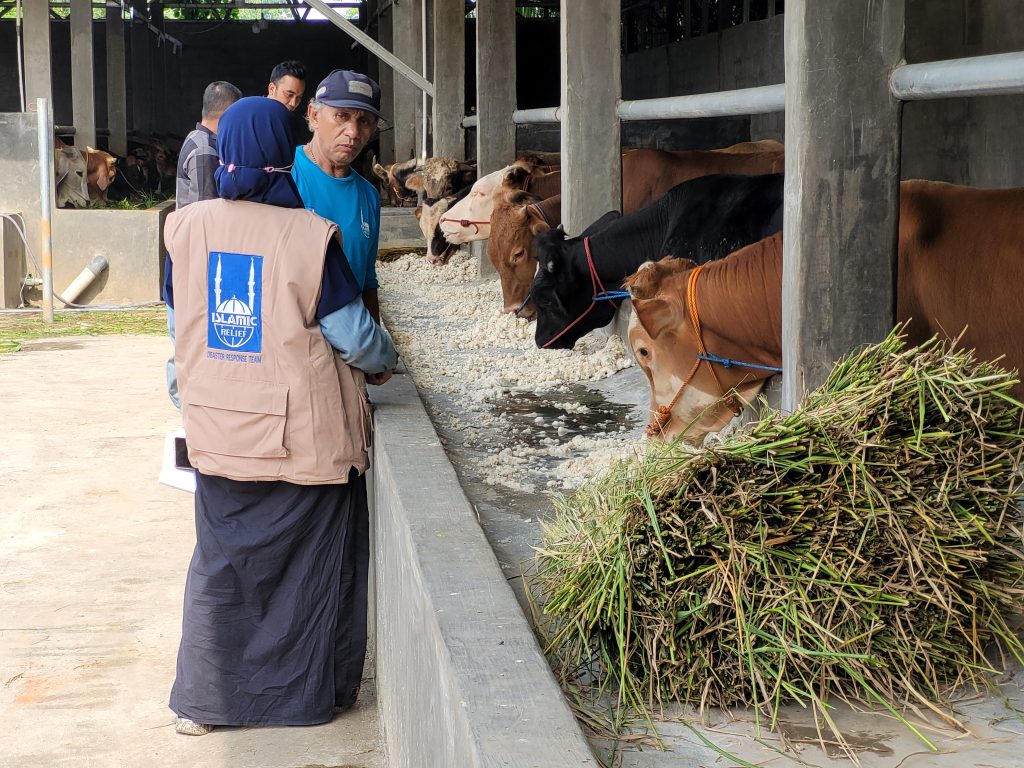
Islamic Relief Indonesia team conducted a visit to vendors’ farms to assess their capacity to supply Qurbani animals to Islamic Relief Indonesia. Rahayu Aprianti a logistic officer led the assessment on 14 June 2022 in Indonesia. The result will be presented to Procurement Committee to decide eligible vendors.
Historically, we select larger animals for Qurbani so that the meat yield is higher and more households can benefit from the Qurbani meat pack.
Each family receives between 2-5 kilograms of meat which feeds a family of 4-8.
The way we slaughter livestock varies community to community. In some field offices such as the Balkans, we work in slaughterhouses with regulated machinery and hygiene standards. In others, like West Africa, we work largely within the communities.
We work with the rights-holders to organize and implement the Qurbani process. In this community-led process, the Islamic Relief field teams continue to provide any additional support and supervision.
What Determines Our Prices?
We don’t just pay for the animal and slaughter. Our Qurbani projects have many steps to ensure our project reaches rights-holders in a dignified manner.
We source high quality animals from local farms and traders, to make sure our rights-holders are receiving good quality meat.
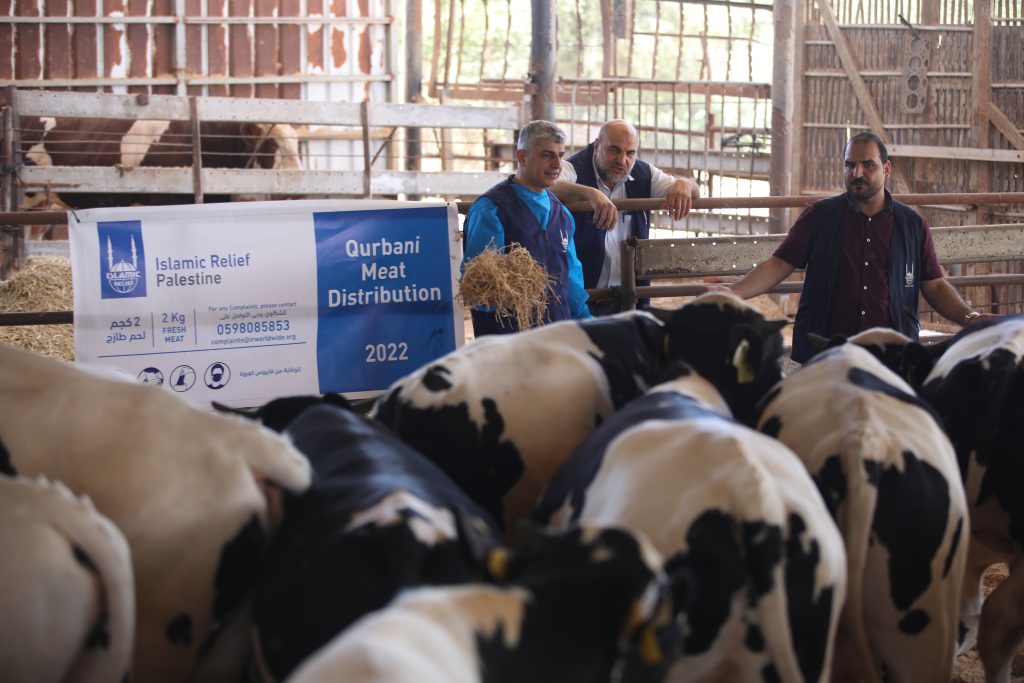
Islamic Relief Palestine conducting animals selection committees in preparation for Al Adha Eid. The committee includes members of Islamic Relief Palestine, local animal breeders and a specialised veterinarian. Qurbani Meat Distribution projects aims at enhancing the food security of vulnerable families. The project will reach about 29 thousand families in Palestine.
We manage the entire transportation and logistics network to ensure the animals are treated in the best possible way, and that all meat is handled, packed and distributed with strict hygiene standards in place.
We also involve local Imams and scholars, as well as skilled butchers to monitor and perform all the sacrifices so that everything is in compliance with shariah in a humane manner for the animals.
The price of your Qurbani includes all the costs associated with caring for the animals, fulfilling the sacrifice and distributing the meat without any waste. The price you pay also takes into account the higher prices in some Middle Eastern countries that import most of their animals, as well as the cost to deliver in very remote areas or conflict zones.
Islamic Relief works constantly to make this program cost-effective in every way while maintaining high quality standards, so that we can offer the best value to both our donors and rights-holders.
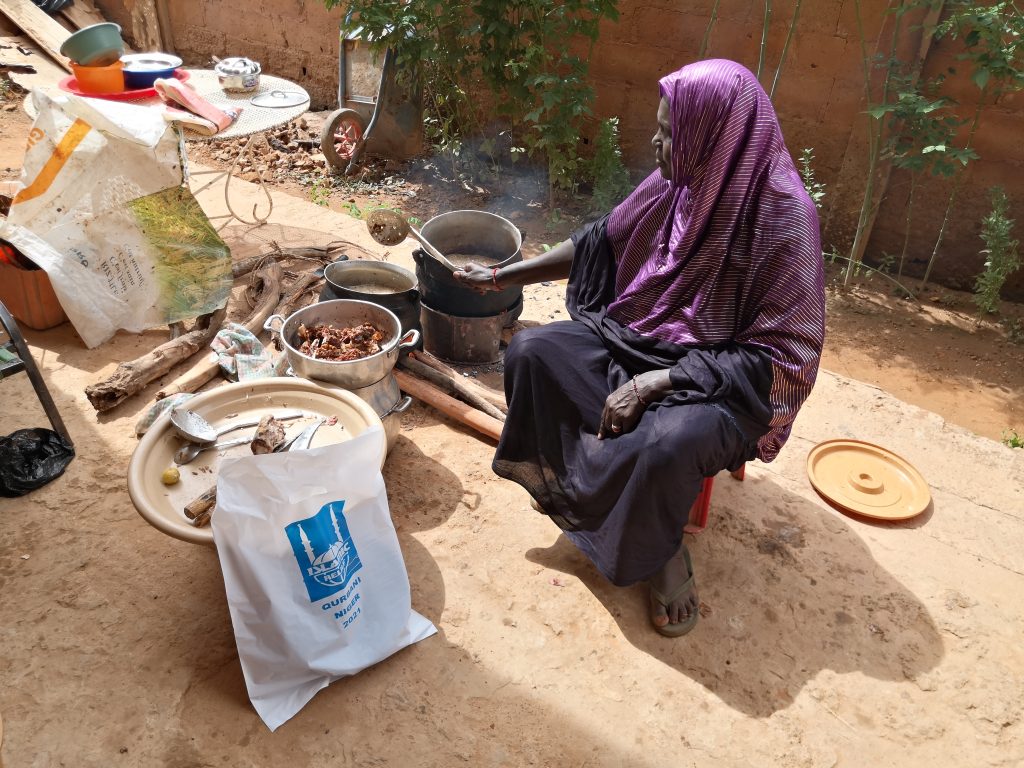
IR Niger Qurbani Programme was conducted in three regions of Niger namely Dosso, Tillaberi and Niamey, a total of 154 localities. For 2021 the Qurbani programme dsitributed 23,660 qurbanis to right-holders, most of which are orphans guardians. Each household has received about 5kg of meat.
Our Qurbani Programs Are Shariah Compliant, Minimal Waste and Safe
We have an appropriately qualified shariah expert to inspect the livestock and observe the slaughter process. Experts include local imams, ulamas, government officials – among many others!
In some countries all parts of the animal (offal, skin, etc.) are consumed or repurposed into useful products. In others, only meat and specific organs are consumed, so the waste material is disposed of at the slaughterhouse or buried in appropriate community slaughter sites. Generally, waste is safely disposed of.
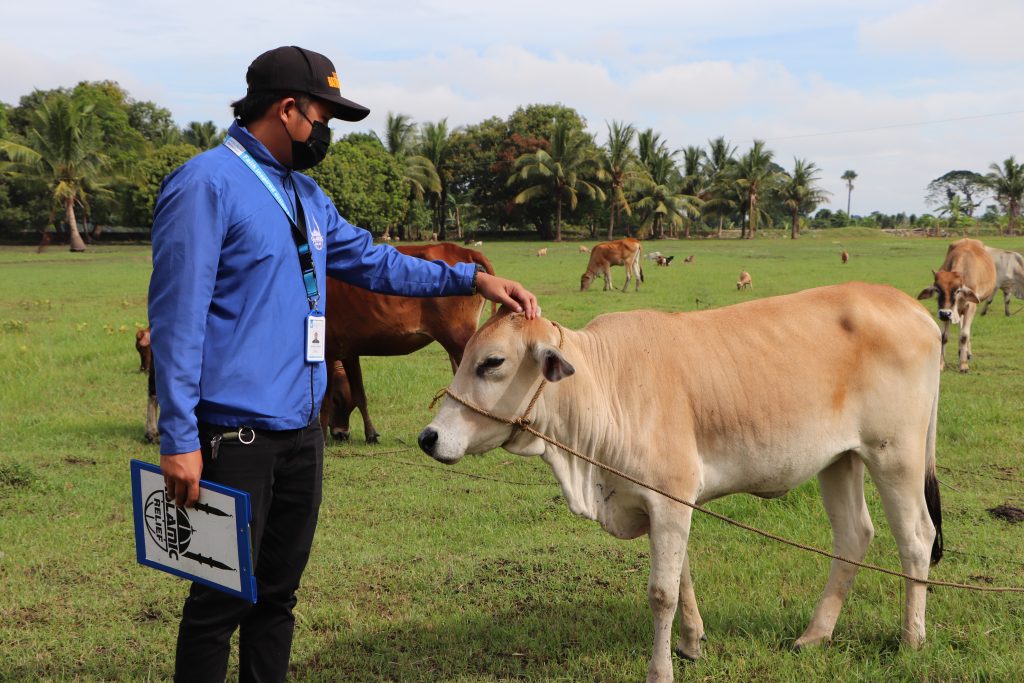
Islamic Relief staff check the condition of the animals, organic free-grazing cows in multiple farm locations, to ensure quality selection of at least 112 cows in preparation for the Qurbani season.
We are constantly monitoring the number of Qurbanis and capacity in each field office. Contracts are signed with suppliers to ensure any potential last minute increase in Qurbani orders can be met by the supplier.
The fresh meat is distributed to rights-holders from the 10th to the 13th of Dhul Hijjah. Where appropriate, meat is stored in fridges before distribution or transported in refrigerated vehicles with local hygiene and food safety regulations strictly followed.
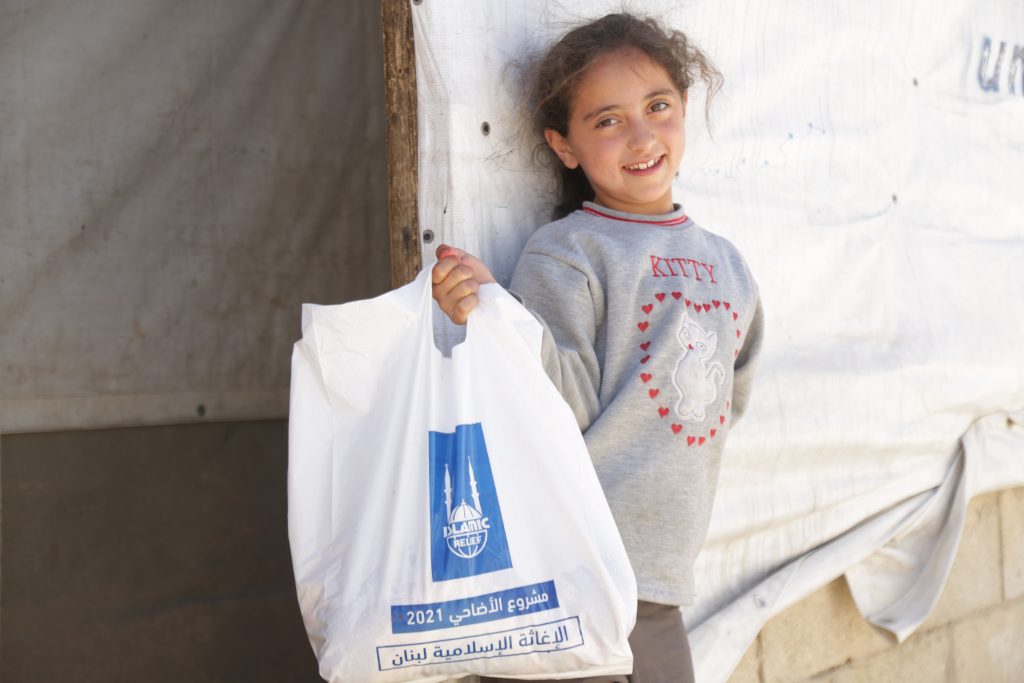
As part of Islamic Relief – Lebanon’s Qurbani 1442 (2021) seasonal programming, we have distributed more than 1,200 meat parcels to more than 1,000 vulnerable households in the Bekaa and North. Distribution will cover more areas on the days of Eid Al-Adha, Insha Allah.
Donate Your Qurbani with Islamic Relief Today!
Islamic Relief has over 30 years of experience running Qurbani programs all around the world. Our relationships with local communities and suppliers mean we are well positioned to fulfill Qurbanis in a timely manner.Doing your Qurbani with Islamic Relief means that your sacrifice is carried out for the most vulnerable people around the world. It is shariah compliant and rigorously humane. Donate your Qurbani with us today.
